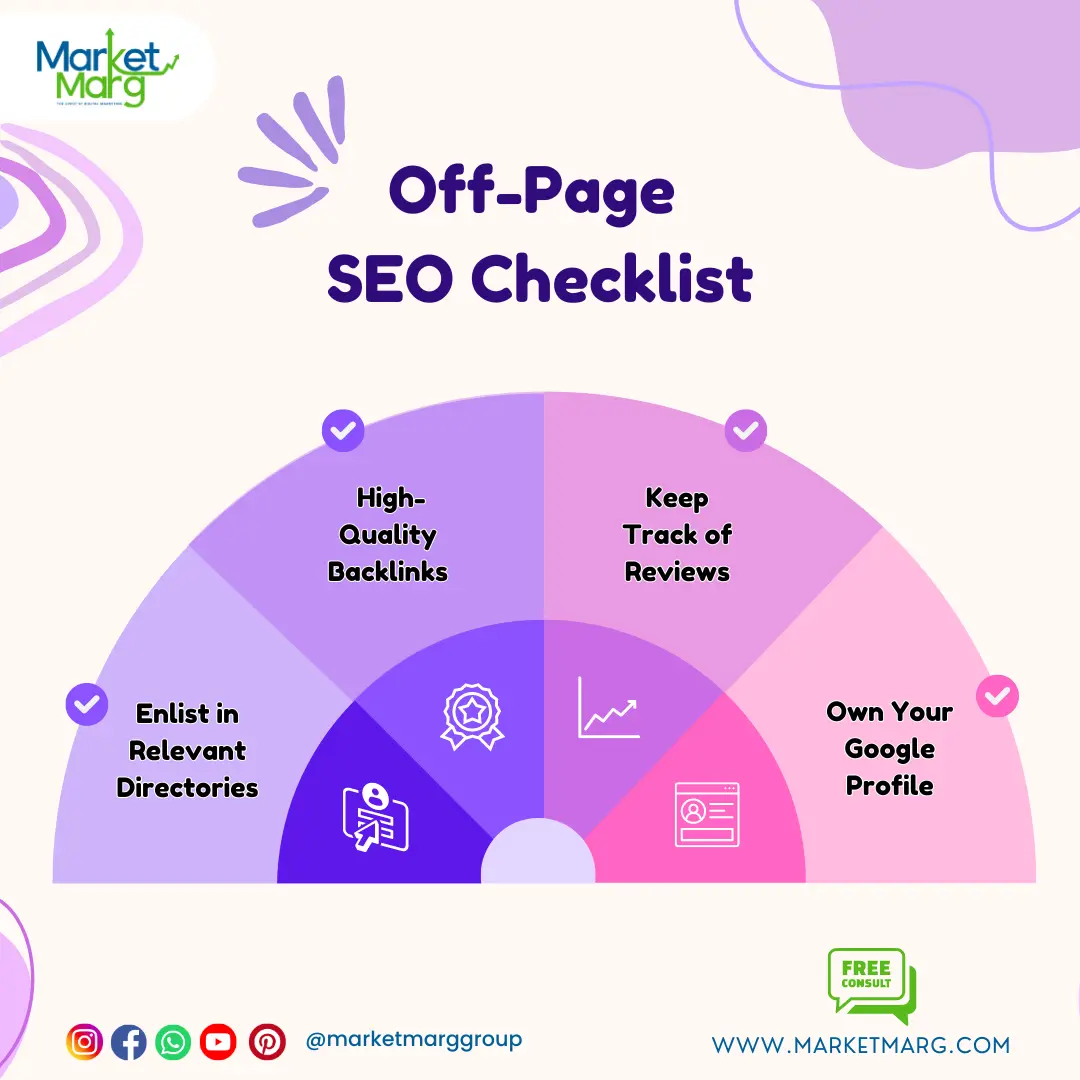In the ever-evolving world of SEO, off-page techniques are just as crucial as on-page strategies for improving your website’s ranking. While on-page SEO focuses on what you can control within your website, off-page SEO involves activities outside your website that impact your ranking on search engine results pages (SERPs). In this article, we’ll explore 10 essential off-page SEO techniques that you simply can’t ignore in 2024.
What is Off-Page SEO?
Before diving into the techniques, it’s essential to understand what off-page SEO is. Off-page SEO refers to all the activities that take place outside of your website but contribute to improving its ranking on SERPs. These activities include building backlinks, promoting your website on social media, and much more. Think of off-page SEO as the reputation you build outside your website’s four walls.
1. Building Quality Backlinks
One of the most important off-page SEO techniques is building quality backlinks. Backlinks are like votes of confidence from other websites. The more reputable sites that link to your content, the more search engines view your site as trustworthy and authoritative. However, it’s not just about quantity; the quality of backlinks matters significantly. Focus on earning links from websites that have high domain authority and are relevant to your niche.
How to Build Quality Backlinks:
- Guest Posting: Write high-quality articles for reputable sites in your niche.
- Broken Link Building: Find broken links on other websites and suggest your content as a replacement.
- Skyscraper Technique: Identify popular content, create something better, and reach out to those linking to the original piece.
2. Leveraging Social Media for SEO
Social media might not directly impact SEO, but it plays a significant role in driving traffic to your website and building brand awareness. When your content is shared across social platforms, it increases the chances of earning backlinks and gaining more visibility in search results.
Tips for Effective Social Media SEO:
- Share Regularly: Keep your audience engaged by sharing content frequently.
- Engage with Followers: Respond to comments and messages to build a loyal community.
- Use Hashtags: Use relevant hashtags to increase the visibility of your posts.
3. Online Reputation Management
Your online reputation is crucial for off-page SEO. A positive online reputation can lead to more traffic, backlinks, and higher rankings. Conversely, a negative reputation can hurt your SEO efforts.
Strategies for Managing Your Online Reputation:
- Monitor Brand Mentions: Use tools like Google Alerts to keep track of what people are saying about your brand.
- Respond to Reviews: Whether positive or negative, always respond to reviews to show that you care about customer feedback.
- Encourage Positive Reviews: Ask satisfied customers to leave positive reviews on platforms like Google My Business and Yelp.
4. Guest Blogging
Guest blogging remains a powerful off-page SEO technique in 2024. By writing articles for other blogs in your industry, you can reach a broader audience and earn valuable backlinks.
How to Succeed in Guest Blogging:
- Target High-Authority Sites: Focus on contributing to websites that have a strong domain authority.
- Provide Value: Ensure your guest posts offer real value to the readers, not just promotional content.
- Build Relationships: Network with other bloggers and website owners to increase your chances of guest posting opportunities.
5. Influencer Marketing
Influencer marketing is another effective off-page SEO strategy. By partnering with influencers in your niche, you can tap into their audience and drive more traffic to your site. Influencers can help amplify your content, leading to more shares, mentions, and backlinks.
Steps to Implement Influencer Marketing:
- Identify Relevant Influencers: Look for influencers whose audience aligns with your target market.
- Build Relationships: Engage with influencers by commenting on their posts and sharing their content.
- Collaborate on Content: Work with influencers to create content that resonates with their audience while promoting your brand.
6. Local SEO and Citations
If you have a local business, local SEO should be a priority. Citations, or mentions of your business name, address, and phone number (NAP) on other websites, play a crucial role in local SEO.
Best Practices for Local SEO:
- Claim Your Listings: Ensure your business is listed on Google My Business, Yelp, and other local directories.
- Consistent NAP Information: Make sure your NAP information is consistent across all platforms.
- Encourage Local Reviews: Ask local customers to leave reviews on your Google My Business page.
7. Forum Participation and Community Engagement
Participating in forums and online communities can boost your off-page SEO efforts. Engaging in discussions on platforms like Reddit, Quora, or niche-specific forums can establish you as an authority in your field.
Tips for Forum Participation:
- Provide Value: Offer helpful advice and insights, rather than just promoting your website.
- Include Links Naturally: When relevant, include links to your content in your forum posts.
- Be Active: Regularly participate in discussions to build your reputation within the community.
8. Content Marketing Beyond Your Website
Content marketing isn’t limited to your website. Sharing content on other platforms can enhance your off-page SEO efforts by increasing visibility and driving traffic back to your site.
Effective Content Marketing Channels:
- Medium: Publish articles on Medium to reach a broader audience.
- LinkedIn: Share blog posts and articles on LinkedIn to target professionals in your industry.
- SlideShare: Create and share presentations on SlideShare to showcase your expertise.
9. Podcasting and Video Marketing
Podcasting and video marketing are growing in popularity and can significantly impact your off-page SEO. These formats allow you to reach a wider audience and create shareable content that can earn backlinks.
How to Get Started:
- Launch a Podcast: Share your expertise on relevant topics in your industry.
- Create YouTube Videos: Produce high-quality videos that address common questions or provide tutorials.
- Promote Your Content: Share your podcast episodes and videos on social media and other platforms.
10. Utilizing Google My Business
Google My Business (GMB) is a powerful tool for improving your local SEO. By optimizing your GMB listing, you can increase your chances of appearing in local search results and Google Maps.
Optimizing Your GMB Listing:
- Complete Your Profile: Fill out all the information in your GMB profile, including your business hours, contact information, and photos.
- Post Regular Updates: Share updates, offers, and news related to your business on your GMB page.
- Encourage Customer Reviews: Ask satisfied customers to leave reviews on your GMB listing to boost your local SEO.
Conclusion
Off-page SEO is a critical component of any successful digital marketing strategy. By focusing on these 10 off-page SEO techniques, you can improve your website’s authority, drive more traffic, and ultimately achieve higher rankings in search engine results. Remember, off-page SEO is all about building your website’s reputation and trustworthiness in the eyes of both search engines and users. So, take the time to invest in these strategies, and you’ll see the benefits in your website’s performance.
FAQs
1. What is the difference between on-page and off-page SEO?
On-page SEO refers to optimizing elements within your website, like content and meta tags. Off-page SEO involves activities outside your site, such as building backlinks and social media promotion.
2. How do backlinks affect SEO?
Backlinks are crucial for SEO as they act as endorsements from other websites. High-quality backlinks from authoritative sites can significantly boost your search engine rankings.
3. Is social media important for off-page SEO?
Yes, social media is important for off-page SEO. While it doesn’t directly impact rankings, it helps increase brand visibility, drive traffic, and can lead to more backlinks.
4. How can I manage my online reputation?
Managing your online reputation involves monitoring brand mentions, responding to reviews, and encouraging positive feedback from customers.
5. Why is local SEO important for businesses?
Local SEO is vital for businesses that operate in specific geographic areas. It helps your business appear in local search results, making it easier for potential customers to find you.



